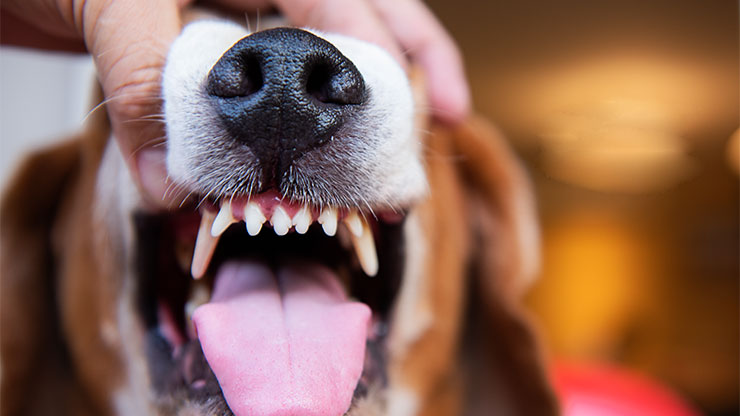
Dog Dental Issues
As dog owners, we naturally want our furry best friends to be happy and healthy, but one area that can easily be neglected is their dental health. Like humans, dogs can suffer from various dental issues, leading to serious health problems if left untreated. These issues are often easily avoided, so it’s important to learn how to protect our pets’ pearly whites from a young age. This article explores three common dental issues you should know about in dogs.
Periodontal Disease (Gum Disease)
Periodontal disease, also known as gum disease, is a progressive condition affecting the gums and tissues supporting teeth. It starts with plaque and tartar build-up, which irritates the gums and leads to inflammation, infection, and tooth loss if not addressed swiftly. Symptoms of periodontal disease include bad breath, red and bleeding gums, pawing at the mouth, and hesitation to chew hard foods. Brushing your dog's teeth should be a regular part of your daily routine, just as it is for people. Using a pet-safe toothpaste and toothbrush is one of the most effective ways to prevent dental issues for your dog. If your pet doesn't tolerate daily brushing, aim for at least a few times a week to make a significant difference in their chances of developing gum disease. Dental chews and toys can also help reduce plaque buildup and promote oral health, but ensure they suit your dog.
Broken or Fractured Teeth
Dogs are naturally curious animals who love to pick up various objects with their jaws. They often chew on hard objects such as sticks and play rough with their toys or friends. While these activities are healthy and are signs of a happy dog, they can also lead to broken or fractured teeth. This can be very painful, especially if the break has exposed the sensitive tissue inside the tooth, and may require veterinary treatment to prevent further damage and infection. Broken teeth can be sharp and cause cuts inside the mouth, and the dog may avoid eating in severe cases where the tooth or surrounding tissues are too painful. The Veterinary Oral Health Council recommends avoiding tough chews for your dogs, such as antlers, hooves, and bones. These can not only fracture your dog's teeth but could also splinter and cause internal stomach issues.

Malocclusion
Malocclusion refers to misalignment of the teeth, which causes issues with chewing and closing the mouth properly. Some dogs are born with this condition, while others may develop it later in life due to an injury or untreated dental disease. Regular visits to the vet for overall health check-ups will help to catch any signs of malocclusion and other dental issues early on so treatment can be started right away before they progress into more serious problems. Some dog breeds, such as Boxers, Shih Tzus, and Boston Terriers, have flatter faces, which cause a malocclusion. However, this is considered ‘normal’ for their breed. Problems occur when the deformity causes trauma to the mouth or difficulty in eating, which isn’t always obvious at first. It’s always best to seek advice from a veterinarian if you think your dog may have this condition.
Being a Responsible Pet Owner
Caring for your dog’s dental health is an essential part of being a responsible pet owner. With regular check-ups and an awareness of common dental issues to look out for, you can help to ensure your furry friend enjoys a long, healthy life.










